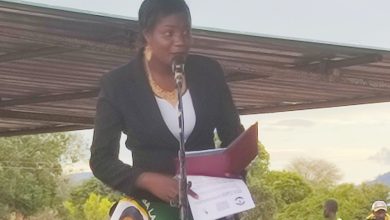Artists turn to international collabos
For years, Malawi’s music industry has been on the sidelines of the continental spotlight.
While many local artists have for years been able to build loyal fan bases at home, only few have succeeded in making collaborations with international artists.

Although concerts featuring global names happened in the country such as Lake of Stars, Sand Music Festival and other big annual events, music collaborations with international artists were almost unheard of.
However, things have changed as in recent years as some artists have made collaborations with international artists.
Local artists are no longer confined to Blantyre, Lilongwe or Mzuzu stages. They are now travelling to South Africa, Zambia, the United Kingdom and other markets.
Most musicians from South Africa and Zambia have become regular visitors in Malawi.
As a result, collaborations with international artists are becoming popular to expand fan bases and taking Malawian music to the global arena.
In recent times, Malawi has hosted Burning Spear from Jamaica, Maverick City group from USA, Nigeria gospel artist Ada Ehi, Zambia’s Yo Maps, South Africa’s Daliwonga, Young Stunna and Nkosazana Daughter.
Two weeks ago, Congolese musician Awilo Longomba and Nigerian superstar Wizkid shared a stage with local artists in Lilongwe at a show in Lilongwe at a show hosted by Tay Grin as he celebrated 20 years in music.
On the same day, South African artist Master KG was in Blantyre.
In an interview, the Karolina hit-maker Awilo Longomba, reflecting on his decades-long career, put it simply.
“Collaboration is key as much as recognition of talent across the globe is concerned. Many African artists are known because they collaborated with others around the continent. I have also had the privilege of working with other artists which is important.”
Having been in music for 45 years, the Congolese star noted that weak economies often push African artists into chasing commercial music genres at the expense of authentic African beats. While he acknowledged this not to be wrong, he insisted it was possible to balance success with identity.
“I sing songs in vernacular that are listened to around the world, even when many don’t understand the words, the songs make an impact. It is possible, I do it and a lot other artists are doing it,” said Awilo Longomba.
His emphasis on collaboration was echoed by BBC Radio 1Xtra presenter and comedian Eddie Kadi who pointed out that new technologies have erased many barriers that kept African artists apart.
He said: “With the new age, the world has become smaller. Even big international artists are now more flexible to collaborate with African artists and African music has been impactful globally from years back.
“But now with social media and new technologies, these exchanges are happening with much ease.”.
Kadi, currently a presenter on the official UK Afrobeats Charts Show cited the UK chart scene as evidence of this new era.
According to him, Nigerian artists once dominated the chart in terms of numbers, but now musicians from East, South and North Africa are making it to the chart.
“It shows that collaborations are making a difference,” said Kadi.
But beyond music-making, he stressed the importance of professional structures that artists have to understand, especially if they treat their art as a business.
Without contracts, foundation and structure on where you are going, it’s never going to work out. An artist might be excited about creating, but they must also understand how the paperwok works in the creative industry,” said Kadi.
Tay Grin’s 20 years music anniversary concert showed that collaborations and networks can work.
He said in an interview that being able to bring the two music icons was the result of networks carefully nurtured over time.
He also has become a cultural ambassador as he wears the tag of culture with his Nyau King moniker. As Malawi tourism envoy, he ansures that wherever he performs he brings along gule wamkulu, the masked dance recognised by Unesco as a cultural heritage.
For him, collaboration is not just about promoting one’s art, but also a way of showcasing Malawi’s identity to the world.
Besides Tay Grin, artists such as Kell Kay, Onesimus, Theresa Phondo, Driemo, Eli Njuchi, Namadingo and Emmie Deebo have ever international artists.
Industry veterans believe this is where Malawi must focus on. Special Adviser to the President on Creative Industries Q Malewezi, said collaborations are not merely about performances on stage, but strategic bridges for valuable networking for the local industry to the global market.
He said: “Such networks are not just about sharing the stage, but also about sharing identity, opportunity and market space. But it is a learning process for our industry on how do we expand the market for local creative products.
“If Malawi continues to strengthen its role in collaborations, the benefits will reach beyond music and strengthen the creative industry in all forms.”





